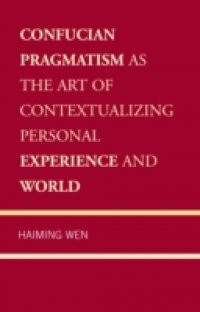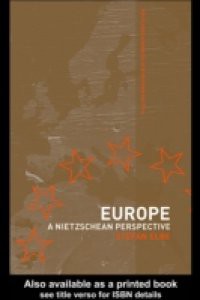This engaging work of comparative philosophy brings together American pragmatism and Chinese philosophy in a way that generates new interpretations of Chinese philosophy and a fresh perspective on issues in process philosophy. Through an analysis of key terms, Haiming Wen argues that Chinese philosophical terminology is not simply a retrospective language that through a process of stipulation promises us knowledge of an existing world, but is also an open, prospective vocabulary that through productive associations allows philosophers to realize a desired world. Relying on this productive power of Chinese terminology, Wen introduces a new term: 'Confucian pragmatism.' Wen convincingly shows that although there is much that distinguishes American pragmatism from Confucian philosophy, there is enough conceptual overlap to make Confucian pragmatism a viable and exciting field of study.

















